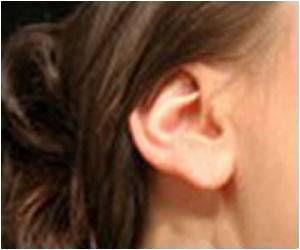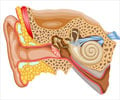
‘Modern life has added a host of ear-damaging elements to the list, including some medications and plenty of sources of loud, ongoing noise.’
Tweet it Now
Therefore, if a genetic change causes a jaw malformation in a fish, an equivalent genetic change could trigger hearing defects in mice and humans. The researchers studied two genes - JAG1 and NOTCH2 - that are mutated in most patients with Alagille Syndrome (AGS). In nearly half of patients, AGS involves hearing loss - in addition to liver, eye, heart and skeletal defects. While some of this is sensorineural hearing loss resulting from deficits in the sensory cells of the inner ear. The researchers also wondered about the contribution of what is known as conductive hearing loss, involving structural components of the middle ear such as the vibrating bones. Knowing that the equivalent genetic mutations caused jaw malformations in zebrafish, the researchers introduced the mutations into mice and observed defects in both the incus and stapes bones, and corresponding hearing loss. They performed hearing tests on 44 patients to determine if their hearing loss was conductive, sensorineural or mixed. The findings in zebrafish and mice revealed that the conductive hearing loss was the most common type, affecting nearly one-third of all ears.
CT scans of five AGS patients revealed a much more complicated picture: a surprising diversity of structural defects in the middle ear with variable effects on hearing. Only one of the five patients had a stapes defect, specifically associated with conductive hearing loss. Teng concluded that if patients are aware of possible conductive hearing loss earlier in life, then they can more promptly seek medical aids for an improved quality of life. The study is published in Scientific Reports.
Source-ANI















